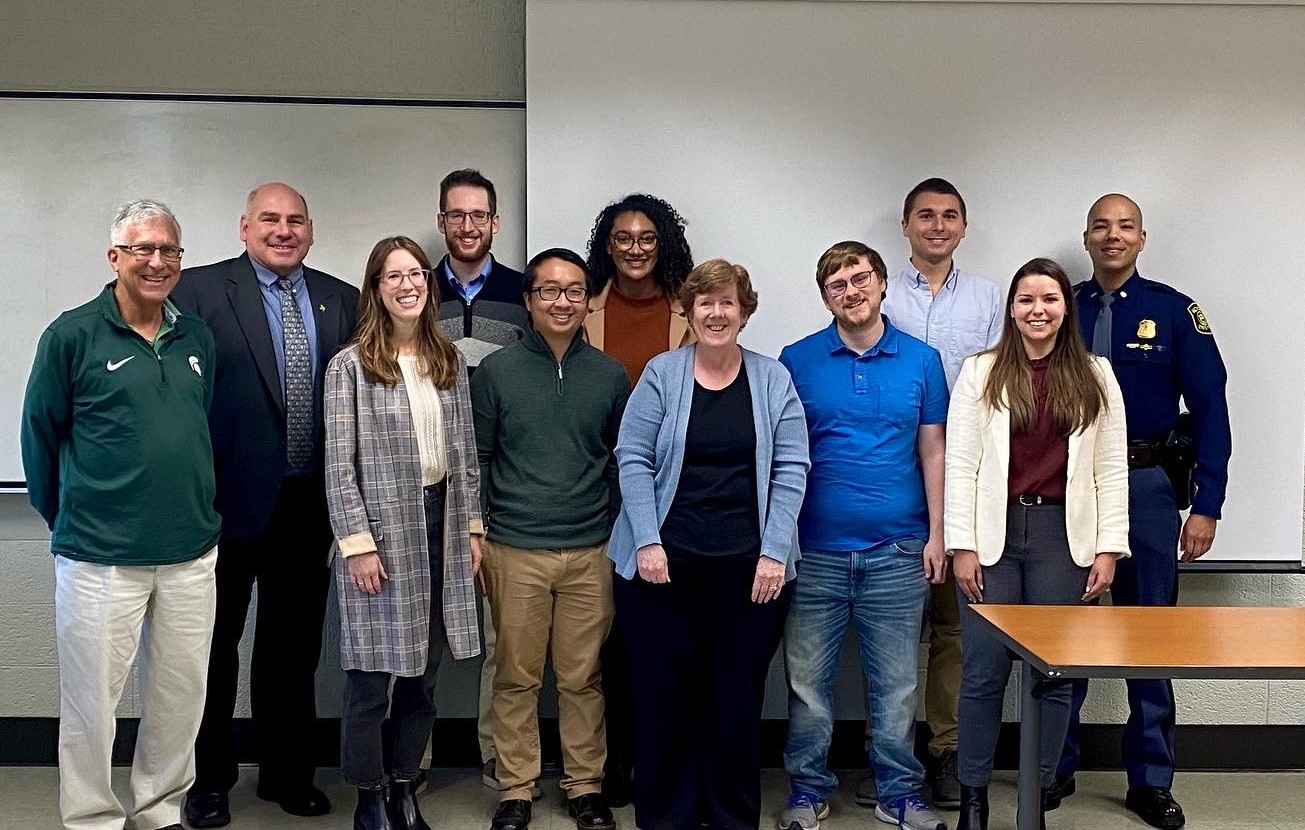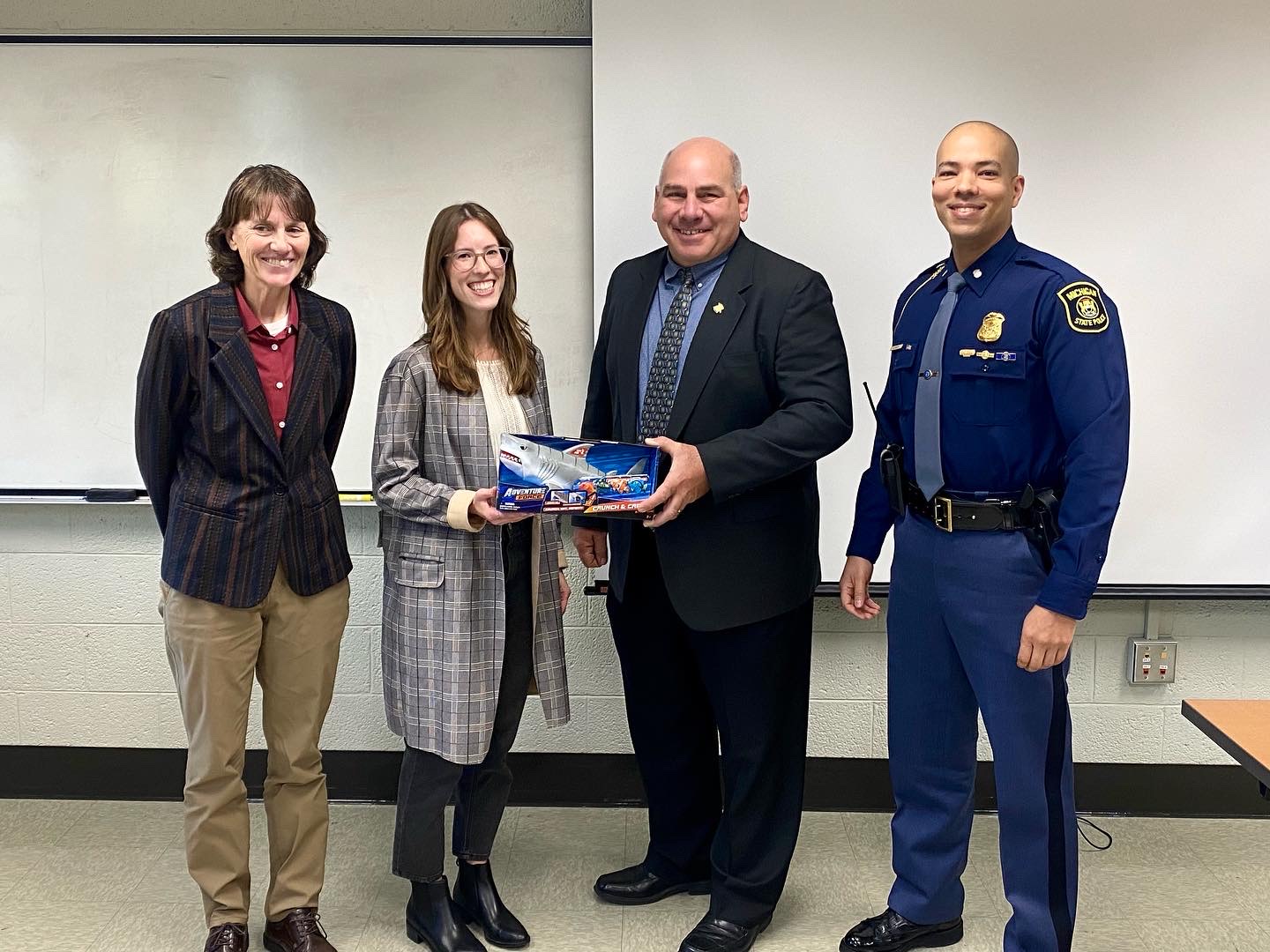MSU Psychology helps Michigan State Police retain a more diverse workforce
October 20, 2022 - Shelly DeJong
 In early October, a class of Organizational Psychology students pitched ideas to the Michigan State Police to better recruit and retain women and ethnic minorities as Michigan State Troopers. Their task was to persuade a panel within five minutes that their idea was the most useful and innovative.
In early October, a class of Organizational Psychology students pitched ideas to the Michigan State Police to better recruit and retain women and ethnic minorities as Michigan State Troopers. Their task was to persuade a panel within five minutes that their idea was the most useful and innovative.
Emily Gerkin, a fourth-year graduate student, took first place. Jo Alanis, a fourth-year graduate student, took second place.
The winning pitch addressed how Michigan State Police can increase recruitment of underrepresented groups by addressing family concerns. Gerkin stated that previous research shows that a fear of negative family reactions contributes to why some women and ethnic minorities do not pursue a career in law enforcement.
“I proposed a Recruit the Family program aimed towards educating families on what a career in law enforcement actually looks like and also educating recruits on how to talk to their families about said careers,” said Gerkin. “I hope the program increases diverse recruitment and generally demystifies careers in law enforcement.”
The panel consisted of recruiter First Lieutenant Dwayne Zook, 2nd in command Lieutenant Colonel Mike Krumm, and Dr. Juli Lieber, Deputy Bureau Director of the Michigan State Police, and former assistant professor of MSU’s School of Criminal Justice.
“We appreciate working with the organizational psychology research team to better understand our recruiting and retention challenges. The knowledge and expertise they bring is invaluable,” said Dr. Juli Liebler on behalf of the Michigan State Police.
Active Research Project
Work between the Michigan State Police and the Organizational Psychology program at MSU is not uncommon. A study, led by Dr. Lieber, Dr. Ann Marie Ryan from the psychology department, graduate alum Dr. Dia Chatterjee, and current graduate students Jo Alanis and Jordan Holmes, is currently underway to look at why individuals drop out of the Michigan State Police training academy and what might be done to enhance retention. The team will soon turn their research to individuals who apply for trooper positions but drop out of the hiring process.
Dr. Lieber and Dr. Ryan have previously collaborated to see why individual criminal justice majors choose not to pursue a career in policing. They are working to apply the findings from that study on work meaningfulness to the current study with the Michigan State Police.
“Early in my career, I published a number of studies on why individuals – and in particular ethnic and racial minorities – drop out of hiring processes for policing positions,” said Dr. Ryan. “In a way, the research has come full circle, as underrepresentation remains a persistent concern for police recruiting.”


